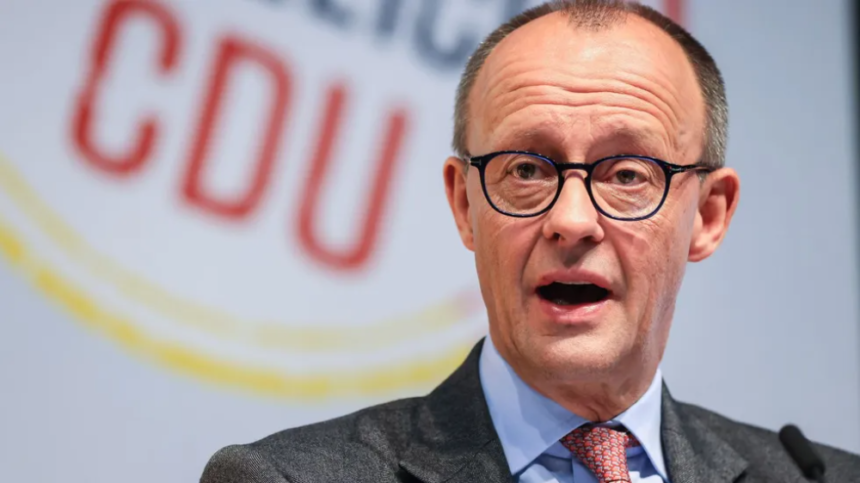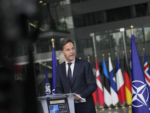Friedrich Mertz, the leader of Germany’s Christian Democratic Union (CDU), has emerged as the leading contender to replace Olaf Scholz as Chancellor, following the collapse of the ruling coalition and mounting frustrations with the current government. As the CDU repositions itself under Mertz’s leadership, the 68-year-old politician promises a shift to the right, particularly on the issue of migration, and a return to traditional conservative values.
Mertz Calls for Confidence Vote
In a move that signals his readiness to take charge, Mertz called on Chancellor Scholz to schedule a vote of confidence in the government as early as next week, rather than waiting until January, as Scholz had proposed. “We simply cannot afford to have a government without a majority for several months,” Mertz argued, highlighting the growing discontent over the instability in Berlin.
Mertz’s calls for action have resonated with many voters. According to a recent poll by public broadcaster ZDF, Mertz has gained substantial support to lead Germany, with 48% backing his bid to become Chancellor, compared to just 37% for Scholz. This marks a significant rise in Mertz’s popularity, reflecting growing frustration with the current government’s handling of key issues.
A Shift to the Right
Mertz has worked diligently to rebrand the CDU since taking over its leadership in January 2022, following the party’s defeat in the 2021 federal elections. His leadership marks a departure from the centrist policies of former Chancellor Angela Merkel, under whom the CDU adopted more moderate positions. Now, Mertz is steering the party back toward its conservative roots, pushing for tougher immigration policies, a stronger emphasis on traditional values, and a firmer stance on law and order.
His conservative platform has gained traction, but it has also sparked controversy. Mertz’s remarks on Ukrainian refugees fleeing Russia’s invasion sparked a firestorm of criticism when he described them as engaging in “social tourism”—a term he used to accuse refugees of coming to Germany solely to exploit its welfare system. Though he later apologized for the comment, the episode revealed the sharp edge of his rhetoric on immigration, which often mirrors that of the far-right Alternative for Germany (AfD).
Tensions with Merkel and the CDU’s Future
Mertz’s relationship with Merkel has been a turbulent one. In 2002, Merkel removed him from the influential position of leader of the CDU’s parliamentary group, a move that forced Mertz to temporarily retire from politics. He spent several years in the financial sector before returning to public life and ultimately seizing control of the CDU.
Critics have suggested that Mertz’s leadership is driven in part by a desire to avenge this political setback. But the veteran politician has also made it clear that his goal is to reclaim the CDU’s traditional conservative identity, which he feels was diluted during Merkel’s tenure.
According to the German weekly Die Zeit, Mertz represents the CDU’s answer to the growing influence of the AfD, offering a more conservative alternative without fully embracing the far-right populism espoused by the AfD. His traditional, bourgeois background—described by Die Zeit as aligning with the social ideals of many Germans, from agnostics to Christians and Muslims—positions him as a figure who resonates with a wide swath of the electorate.
A Controversial Streak
Mertz’s rhetoric, particularly on immigration, has not been without controversy. Beyond his remarks on Ukrainian refugees, he has also attracted criticism for his comments about the 2022 attack on emergency services in Berlin, which he blamed on “young thugs from Arab backgrounds” who “have no place in Germany.” This language has drawn parallels with AfD-style rhetoric, even though Mertz has repeatedly distanced himself from any potential alliance with the far-right party.
Despite the controversy, Mertz has consistently emphasized his strong stance on security and his opposition to what he sees as the failures of Merkel-era policies on migration and crime. He is a staunch advocate for deporting rejected asylum seekers and criminals, and has promised a tougher approach to integrating migrants into German society.
Foreign Policy and Economic Views
On foreign policy, Mertz is firmly pro-European and strongly supports Germany’s military aid to Ukraine in its fight against Russia. He has also called for a more assertive role for Germany in international affairs, reflecting his belief that the country must stand up for its values in the face of global challenges.
Economically, Mertz aligns closely with the Free Democratic Party (FDP) on issues like the “debt brake,” a policy designed to limit new borrowing and maintain fiscal discipline. While this has earned him support among fiscal conservatives, critics argue that the policy limits Germany’s ability to invest in long-term growth, particularly in infrastructure and digitalization.
The Road Ahead
With the political landscape in Germany in flux, Friedrich Mertz’s rise marks a turning point for the CDU and the country as a whole. While he faces challenges—both from within his party and from his political opponents—his message of conservatism and strong national security has found a receptive audience. Whether Mertz can turn his growing support into a viable path to the Chancellery remains to be seen, but his influence on German politics is undeniable.
As Germany enters a period of political uncertainty, Mertz’s leadership promises a return to traditional values and a rightward shift that will likely reshape the country’s approach to migration, security, and economic policy in the years ahead.







